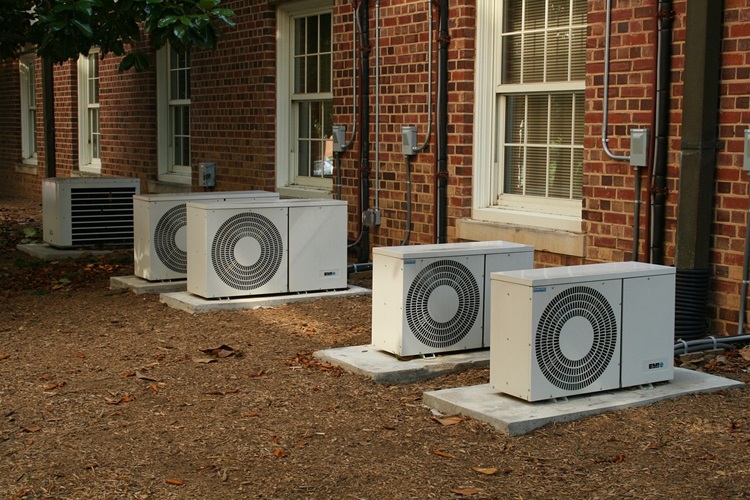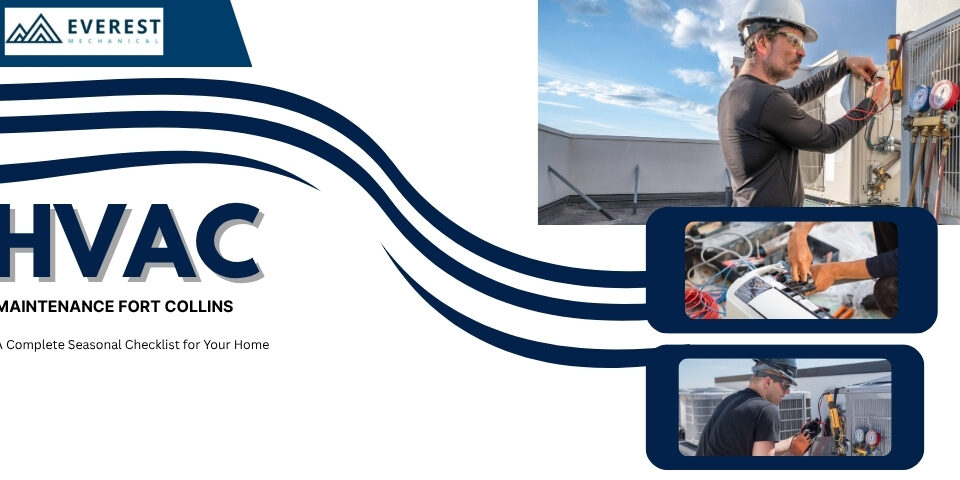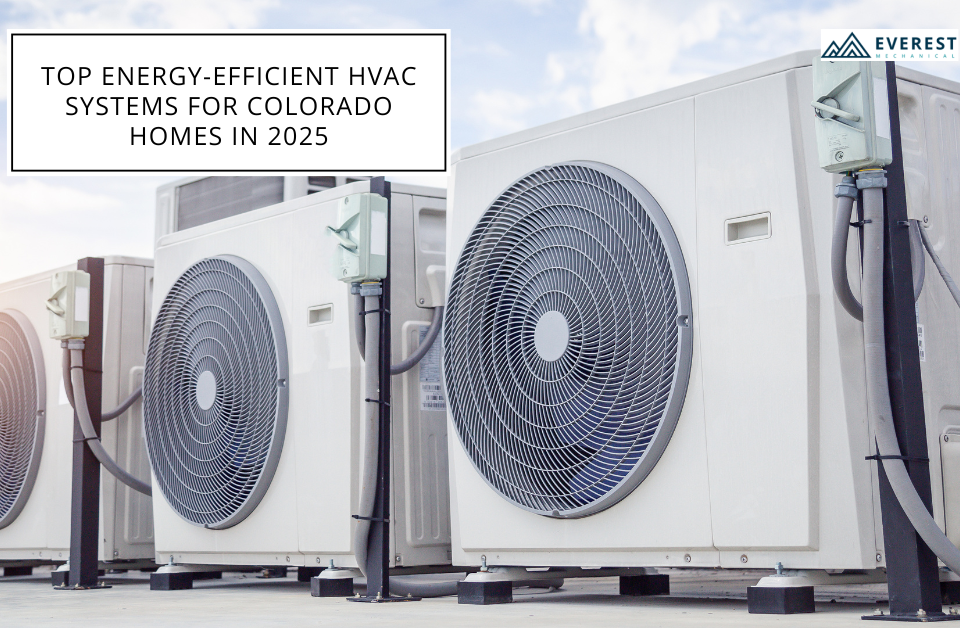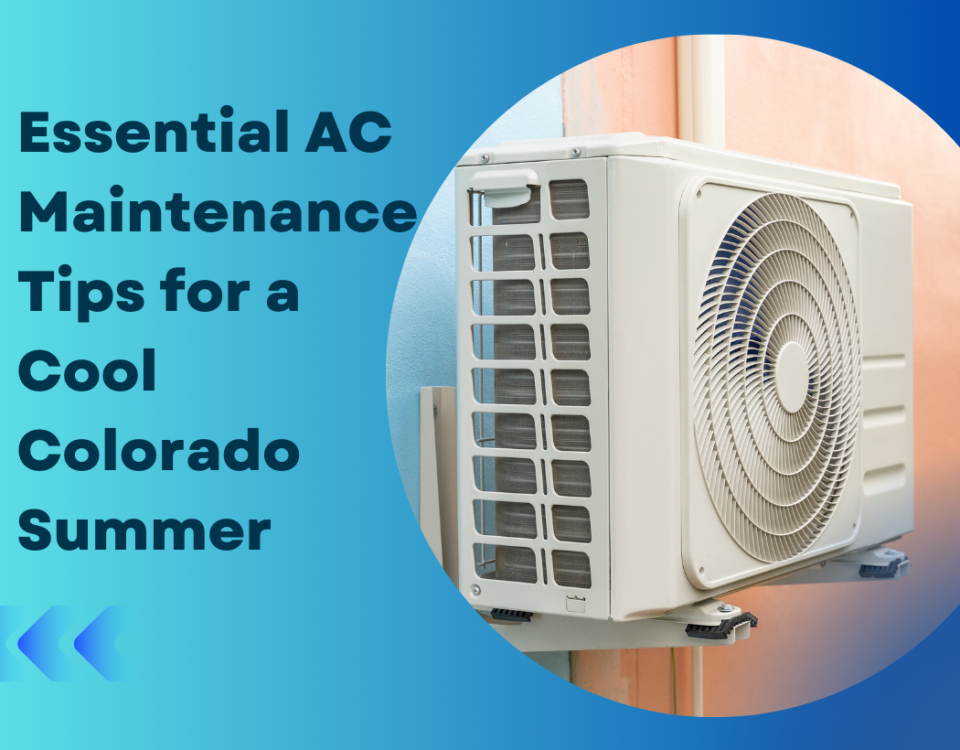- Servicing areas in and around: Estes Park, Longmont, Boulder, Arvada, Fort Collins, Denver, Loveland, and Lyons
- 8883880970
The Ultimate Guide to Choosing the Right Air Conditioner for Colorado Climate

Know How to Improve Indoor Air Quality and Cooling
May 25, 2024
What are the sustainable cooling options for Colorado homes?
June 15, 2024If you live in Colorado, then you will be appreciating the state’s stunning scenery and mountain air. However, when summer arrives, the same mountain air can transform into a heat wave where the only savior will be an efficient air-conditioner in your home or office.
Whether you own a commercial or residential building, you sometimes need to replace your old air conditioners with new advanced, more energy-efficient air conditioning systems. But with a plethora of options available in the market choosing the right one can be a difficult task.
In this ultimate guide, let us take you through the necessary knowledge to make an informed decision and ensure your home in Colorado remains cool and comfortable throughout the summer with the right AC.

Closer Look at Colorado’s Climate
If you want to replace or install a new air-conditioning system, it is highly recommended that you are aware of what the weather in Colorado is like. This state’s climate presents various air-conditioning challenges as the air here becomes thinner because of high altitude and there are very less air molecules to cool.
On top of that, Colorado residents also have to go through dry heat, unlike the humid summers in other regions. This leads to feeling hotter for a longer period of time. Then the high level of temperature fluctuations daily and in different seasons, makes it absolutely necessary to have an air conditioning system that can adapt to this fluctuation.
Check your cooling requirements
Now, the most important part is your individual cooling needs. While the Colorado weather can affect your decision to buy the right AC unit, you need to pay proper attention to your residential or commercial building’s cooling needs.
Here are some things to consider:
- Square Footage and Layout
The area of the home or building you want to cool is important as it determines the size of the room or hall for which cooling power is required. Open floor plans, such as in commercial spaces, require more powerful AC units as compared to homes that are like compartments.
Here is a brief overview of the size of AC needed based on the area of cooling space:
- 300 to 500 sq. ft: 1 ton AC
- 500 to 1000 sq. ft: 1.5 ton AC
- More than 1000 sq. ft: 2-ton AC
- Insulation Level
Insulation level determines how well the air cooled by air conditioning systems is retained in your home. If the insulation level is higher, then the AC needs to work less which will ultimately consume less energy. There are various insulation quality factors that must be considered when deciding the right AC size.
- Exposure to sun and shading
If your home or building’s walls are facing south and there is a lack of proper shading, then it will significantly increase the cooling needs. Though this is one factor that can influence your decision, you can plant trees strategically or install awnings on south-facing windows to reduce heat gain and minimize the workload on your AC unit.
- Occupancy and Lifestyle
The number of people in the home or a building and their activities also influence the cooling requirements. If it is an office space or home with a higher number of members, then it will naturally demand more powerful air conditioning systems.
Different types of AC Units
So, by now you must be aware of things to consider when deciding the right AC for your home or commercial building. Now, we will check out some of the most popular and latest air conditioner technologies that will help you understand what’s latest and trending on the market to help you make better decisions.
The following are different types of AC units to choose from:
- Central Air-Conditioner
This is often regarded as the best option for mid-sized family homes, homes with multiple stories, or commercial buildings. It consists of an outdoor compressor unit and an indoor air disbursal unit connected with each other via ducts.
In this type of AC, the compressor cools the refrigerant and it is then circulated through ducts and cools the air inside a home or a building. Though they provide consistent cooling even in large homes, they come with high installation costs and may require existing ductwork.
- Ductless Mini-Split Systems
If you have a home without existing ductwork or have specific cooling needs in certain zones, then ductless mini-split systems can be a great option for your home. These units have an outdoor compressor and they are connected to multiple indoor air handling units mounted on walls.
Each indoor air disbursal unit can be controlled individually which helps to control the cooling as and when required in the specific rooms/zones. They offer better flexibility than central ACs, however, they have higher upfront costs than normal window ACs.
- Window and Portable Air Conditioners
These are great options for homes with small rooms and cooling spaces. They are affordable and can provide cooling in specific areas where installing indoor air disbursal units is not feasible. Windows ACs are installed in windows obviously and vent the hot air out of the window. Contrary to window ACs, portable ACs are freestanding units with a hose that is used to vent hot air out of the window.
They are affordable options as compared to central or ductless air conditioners, but they are not so efficient in cooling and can be noisy in their comparison.
Look for Energy Efficiency and SEER Ratings
Another critical factor when choosing the right AC for your residential and commercial building is the SEER rating and energy efficiency of the air conditioner units. The cost of energy is rising so as a homeowner you must look for units with high SEER ratings. SEER refers to the Seasonal Energy Efficiency Ratio, and it measures how efficiently an AC unit converts electricity into cool air.
The higher the rating, the higher the efficiency which means a lower energy bill and reduced environmental impact as well.
- Minimum SEER Rating: In the United States, the minimum SEER rating of new AC units is 14
- Good SEER Rating: SEER Ratings between 15 and 18 are considered good and provide balanced efficiency and affordability
- Excellent SEER Rating: SEER Ratings above 18 are known to be excellent provide the highest level of efficiency and help with significant cost savings over time. But AC with higher SEER ratings often have higher initial costs.
Apart from the SEER rating, variable-speed compressors, and programmable thermostats are also great technologies to enhance the energy efficiency of ACs. Variable-speed compressors can adjust cooling output as per the demand, and programmable thermostats help to set specific cooling schedules that minimize overconsumption of energy at idle times.
Some Other features to look out for in your new AC units
Beyond the core functionality of cooling your home, you must also consider some additional features to provide you with maximum benefit:
- Noise Levels: Some AC units generate greater noise, especially the outdoor compressor units. If you are looking to install AC for your bedroom or office space, then consider quieter models with lower decibel ratings.
- Indoor Air Quality Features: Modern AC units come with advanced air filtration systems and help improve indoor air quality. They can remove dust, allergens, and other airborne particles.
- Smart features: There has been huge advancement in technology and modern AC units are AI-enabled. They have integrated smart features like remote controlling, scheduling through smartphones, control via voice commands, etc. This provides enhanced convenience and may potentially lead to improved energy efficiency as it can enable temperature adjustments based on occupants and time of day.
Everest Mechanicals: For Professional consulting and installation
Finding the right AC unit for your residential or commercial building is a complex task where you need to calculate area, cooling space, cooling requirements, ventilation, installations, and a lot of other factors. Therefore, it is highly recommended to consult a professional HVAC service company in Colorado to offer you the right consultation and AC installation service.
Everest Mechanical is a professional HVAC service contractor in Colorado and we serve various regions of the state including Denver, Fort Collins, Estes Park, Longmont, Boulder, and other nearby regions.
Our skilled and trained technicians will consider all the factors and assess your specific needs, such as the home’s size, layout, insulation quality, sun exposure, etc., and recommend the most suitable AC type, size, and features, to ensure the best comfort and energy efficiency.
We also provide a warrantied installation process to ensure there is proper equipment sizing, and ductwork installation if needed and see if your new AC units work best for you.
So, now that you understand the weather in Colorado, and various factors to consider while choosing the right AC systems, you can make a better decision. We also highlighted the importance of professional consultation for new AC installation. So, if you are looking for a new AC installation and are confused about which type of AC you should go for, contact Everest Mechanical now, and let us handle everything for you.




